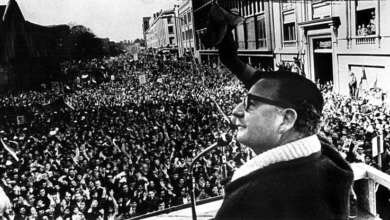Protesters set up roadblocks in Guadeloupe’s main roads in the early hours of Feb. 15 after nearly a month of strikes and actions.
|
Protesters have blocked fuel stations, roads and supermarkets. The island’s tourism industry, which is central to the economy, has been dealt a severe blow. Some hotels have said they will have to close their doors if the strike is not resolved soon.
The island of Guadeloupe is a French “overseas department”—a colony—located in the eastern Caribbean Sea with a population of nearly half a million people. As with most other colonial territories, Guadeloupe’s economy is highly underdeveloped and thoroughly dependent on that of its colonial ruler. The island relies on France for foreign trade, large subsidies and a constant influx of tourists. Most manufactured goods and fuel are imported, and it exports primarily agricultural products.
Unemployment is a severe problem and is especially high among the youth of the island. Four French overseas territories had the highest unemployment rates in the European Union in 2007, with Guadeloupe ranking second among those.
Seeking to exploit the island’s sugar, France first colonized the island in the 17th century and has more or less maintained control of the island ever since. The colonial history of the island nation is a direct backdrop to the present upheavals.
The current protests began in the midst of growing tensions in France over continued cuts in basic services. On Jan. 29, over 2 million people took to the streets of France to protest the anti-worker policies of the Sarkozy government. Demands included job security, better wages and a call for the government to stop bailing out the banks while workers continue to suffer and get laid off from their jobs.
On Sun., Feb 1, French officials flew to Guadeloupe for talks aimed at ending the strikes. The French ruling class is concerned that the strikes that have paralyzed the French “department” will fuel the dissent back in France. But the French government has rejected demands to raise the minimum wage in the Caribbean island.
Meanwhile, the protests have spread to Martinique, another French colony located in the Caribbean Sea, whose own strike action began Feb. 5. There is reported to be a shortage of gasoline, cooking gas and other necessities in Martinique, with water and electricity also affected.
The upsurge in the mass struggle in Guadeloupe is no isolated incident. Greece, Latvia, Bulgaria, Chile and numerous other countries have seen protests break out in recent months, underscoring the global character of the deepening economic crisis. That the crisis has been met by rising working-class militancy—in the heart of an island colonized for hundreds of years—should be a source of optimism for progressive forces worldwide.







